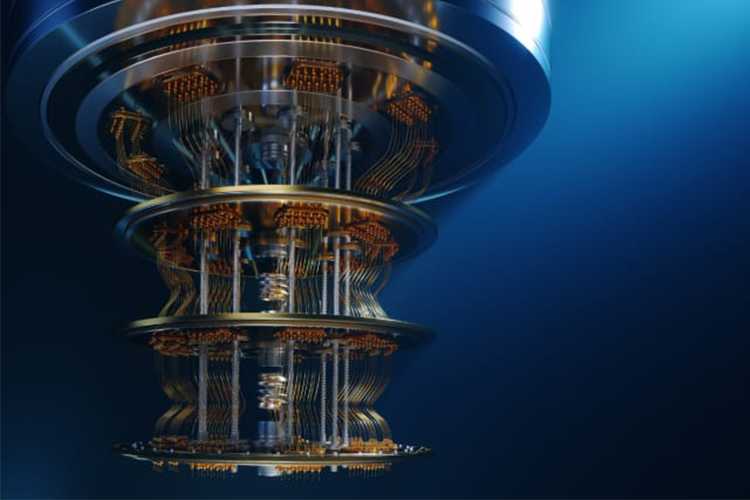
The intricate and delicate components of a quantum computer look vastly different than components in classical computers. photo by Shutterstock
Functional quantum computers may exist sooner than previously thought.
The internet was created over forty years ago, and within that time it has drastically changed the way people live their lives. Though that change started slowly and initially affected only the affluent, today the internet is a tool that people of a variety of statuses must use in order to meet their basic needs. Although the internet is ubiquitous right now, thirty years ago, the vast majority of people had absolutely no access to the internet. Those people would likely have never thought that thirty years later, they would not be able to live without it.
Ten years ago, the new-generation tech would have significant improvements in speed and ability compared to past processors. Now, we have all but reached the limits of how fast a silicon-based chip process can be. The jump in transfer speed from double data rate four to double data rate five is so small that nobody but graphic designers would be able to tell the difference. The jump from 30 series to 40 series graphics cards is hardly worth it. Games that run poorly often do so because of poor design and optimization, not system specs.
Quantum computing could prove to be the next big leap in computer technology. As scientists continue to improve our understanding of the laws of quantum physics and their corresponding phenomena, companies such as Amazon, Microsoft, and IBM are creating ways to use these phenomena to make computations. By observing the phenomena of certain particles on a quantum scale, it could be possible to compute problems in a way that traditional silicon-based computers simply can’t.
Quantum computing at its core is the manipulation of quantum particles called qubits. Processing qubits is the way that quantum computers can make calculations, similar to how classical computers process bits to make calculations. There are many different types of qubits that scientists are experimenting with to monitor quantum light sources for their computation – some even use magnetic fields on a quantum scale for their calculations. All quantum computers have three main components: the quantum data plane where all of the physical qubits are stored, the control and analog plane that converts the quantum signals from the qubits into analog signals, and the control processor plane and host processor that use the signals in quantum algorithms and interact with the quantum software.
IBM recently made a large breakthrough in quantum computing when they solved a math equation too complex for classical computers to solve algebraically. Although there is currently no way of knowing if their answers are correct, this proves that quantum computers could have significant uses later on. “We envision a future defined by the continuous improvement of both paradigms as they solve problems best suited for each,” stated IBM in an interview with Forbes. Quantum computers likely won’t be able to replace classical computers completely, as each type has its own utilities and strong suits. However, only time will tell as quantum computing is still in its infancy and a lot of progress has to be made.